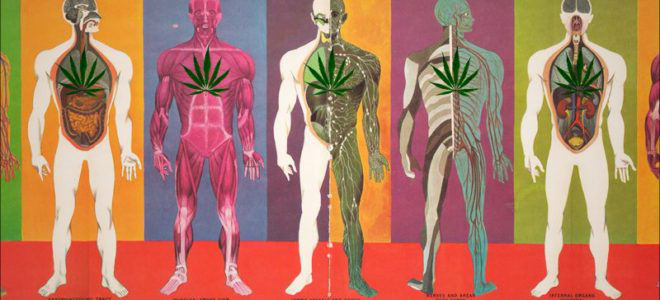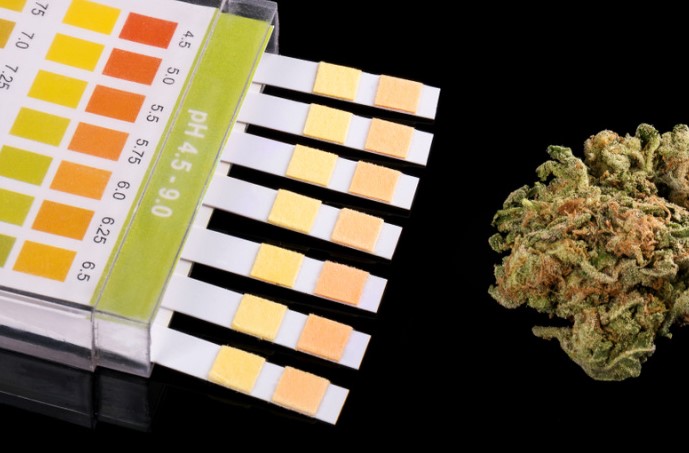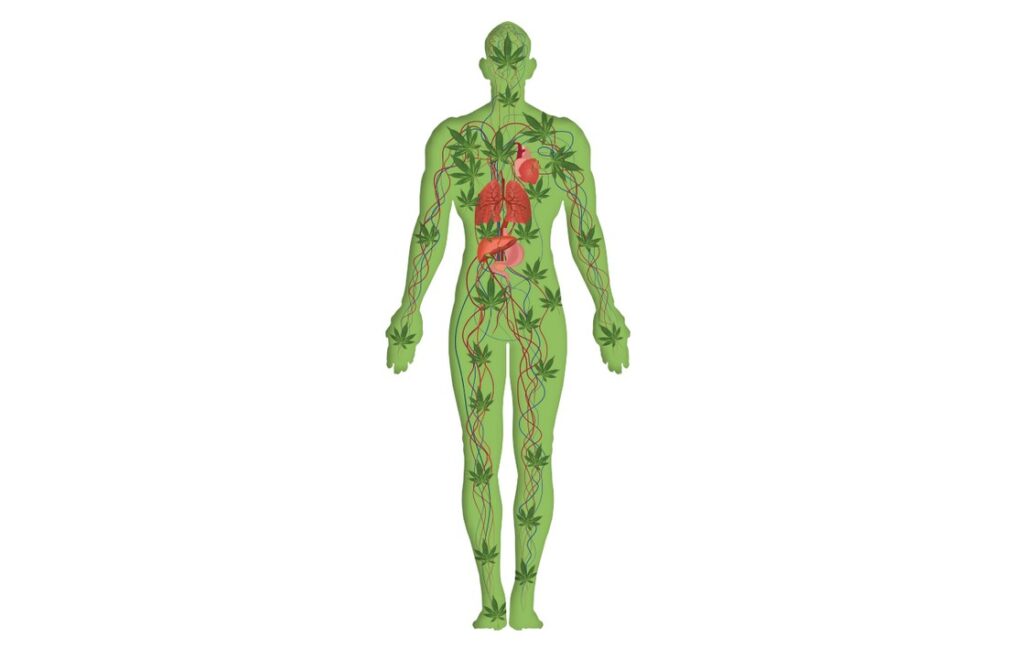Marijuana, also known as weed, pot, or ganja, is a medicinal plant of the Cannabis family. It contains a psychoactive compound known as tetrahydrocannabinol (THC) that has major intoxicating effects. The leaves, seeds, stems, or roots, are mainly used for intoxication purposes. Marijuana preparations are usually smoked in pipes, joints, or water pipes (bongs). Marijuana users also add it to food or brew it as a tea. Marijuana is the most abused substance in the United States. Approximately, 11.8 million young adults used marijuana in 2018.
How do drug tests for THC work?
About 40 to 50 million drug tests are conducted by employers each year, which analyze biological material including urine, hair, blood, saliva, breath, sweat, and even fingernails. When cannabis is consumed, THC levels temporarily rise in the body, which are detectable by blood tests from several hours up to a day after a single usage. Although these levels drop significantly after a few days, there are still other means of determining recent usage.

THC, CBD, and their metabolic byproducts, called metabolites, are lipid-soluble and accumulate in fat reserves throughout the body. These molecules are then slowly released over time, resulting in a considerably longer time period for the body to purge itself of marijuana traces compared to other recreational drugs, especially for chronic users. Hair tests tend to have the longest detection window, capable of registering the levels of a non-intoxicating THC metabolite called 11-nor-delta9-caboxy-THC (THC-COOH) up to 90 days after cessation.
While each drug test has its advantages, urine tests tend to be the test of choice by most private employers and are the sole test recommended by the Substance Abuse and Mental Health Services Administration (SAMHSA), a branch of the U.S. department of Health and Human Services that sets standards for drug testing of government employees. Like hair tests, these urine screens do not directly measure the amount of THC present, but rather the levels of the metabolite THC-COOH.
Once a specific test is selected, the experimenter must then choose its sensitivity, or the cutoff concentration of THC-COOH above which a test is considered positive. The most common cutoff for most marijuana urine tests is 50 ng/mL, but cutoffs can be as low as 15ng/mL and as high as 100ng/mL—each of which result in widely different detection windows.
“Testing is usually a two-step process,” says Vandrey. “The first step is a qualitative yes/no with a typical cutoff of 50 nanograms per milliliter. And if you see a qualitative positive, you then send it off for confirmation with a more sensitive quantitative assessment that uses a 15 nanograms per milliliter cutoff.”
Despite the fact that SAMHSA sets standards that regulate these urine tests, the vast variability in cannabis use as well as individual differences in biology and genetics stymie efforts to develop specific time windows for detection.
Whether you fear an imminent drug test or simply want to know more about marijuana’s effect on your body, you’ve likely wondered how long cannabis stays in your system. Not only will this information help you avoid the negative consequences of testing positive, but it also helps you decide whether you personally want to use cannabis. So, how long does cannabis remain in the system?
The Answer
For most people, cannabis stays in the body in large enough quantities to be detected for no more than a month, and often as little as 10 days. Specific detection times, however, vary based on how long you have used the drug and what type of test you take.
The most common detection methods include:
· Urine Tests
If you’ve only used cannabis once, a urine test can detect it within 7 days. If you use it regularly, detection times can range from a week to 100 days, though they usually fall under 30.
· Blood Tests
Of more limited duration than urine tests, blood exams can detect cannabis in repeat consumers between 2 and 7 days after the last time they used it. If you have only used it once, these tests typically work for 24 hours.
· Hair Tests
This method is of limited value on single users, but for repeat users, it can detect cannabis for months afterwards – sometimes years for heavy consumers.
· Saliva Tests
These exams have not yet been shown to work, whether for repeat or single users.
Different methods have different detection times because they don’t search for the same thing. Urine tests, for example, detect THC-COOH, which is not psychoactive, while blood tests look for the psychoactive version of THC. This makes blood tests better for measuring actual impairment.
While these are the average detection times, they may not be accurate for you as an individual. Heavy users, for example, might take much longer for THC to leave their system. Because of this, it is important to consider the following information.
Factors for Finding Cannabis
The length of time cannabis stays in your system and your likelihood of testing positive both depend on a wide variety of factors. These include:
· Body Fat Content
Cannabinoids, or chemical compounds responsible for the effect of cannabis on the brain, store themselves in fat cells. Thus, the higher a percentage of body fat you have, the longer it will be in your body. In general, this means that people with higher body mass indices (BMIs) will have cannabis in their system for longer, though BMI is not perfectly correlated with body fat content.
· Exercise
While exercising does not increase the total amount of time that cannabis stays in your system, it may increase your likelihood of testing positive on a drug exam. When you exercise, your body burns fat, releasing chemicals stored in that fat into the bloodstream. Thus if you exercise shortly before taking a drug test, it is more likely to find the substance. However, exercising weeks before an exam is recommended because it will burn fat cells containing cannabinoids.
· Hydration
If you are dehydrated when you take a drug test, there will be less water in your urine or blood, meaning that cannabinoids will make up a higher percentage of the sample. As with exercise, this technically does not make it stay in your system longer, but it can cause you to test positive at a later date than you otherwise would.
· Drug Strength
Different varieties of cannabis have different levels of strength. The stronger it is, the higher a concentration of THC it has. This can leave more cannabinoids in your body, which may take longer to eliminate.
· Metabolism
An individual’s metabolism affects the rate at which their body eliminates cannabis. It also affects the amount of body fat they have, further influencing cannabinoid detection.
· Other Factors
Height, age, gender, and the method you used to ingest cannabis all affect how long it can be detected in your system.
Based on this information, many people think they can find ways to lower their probability of testing positive for cannabis use. While it is true that lowering your amount of body fat and staying fully hydrated can improve your odds, quick fixes have a poor track record of helping people pass drug tests.
How long does weed stay in your system?
Meanwhile, each of us has a unique metabolism that processes marijuana at a different rate, further complicating the picture. Even amongst people of the same gender and age, individual lifestyle choices such as levels of exercise and eating habits may also affect the amount of time required to pass a drug test (those with higher levels of fat content store cannabinoids more readily than leaner folks).
After you use marijuana, your body has to break down THC, the active ingredient. THC gets into the bloodstream and is temporarily stored in fat and organs, according to Healthline. Long after you come down from your high, the liver has to process the THC and break it into metabolites, which is what drug tests detect. Because THC binds to fat, it takes longer for traces of marijuana to leave the body than other drugs such as alcohol.
This is how long THC metabolites can be detected in different parts of the body, according to Medical News Today:
- Blood: 3-4 hours
- Saliva: 1-3 days
- Urine: 3-30 days
- Hair: Up to 90 days
The exact amount of time it takes for marijuana to leave your system varies from person to person. Age, sex, and BMI all affect how fast you can metabolize THC. Chronic use, higher doses, more potent strains, and eating edibles rather than smoking marijuana can all increase the length of time it’s detectable in your body.
Given these preliminary grains of salt, however, there are several studies that have explored this question over the years, which offer some general guidance for those awaiting their impending drug test.
According to a 2005 review by Paul Cary, director of the Toxicology and Drug Monitoring Laboratory at University of Missouri, while detection times in excess of 30 days do occur for some, they are largely an exception.

For example, a 1989 study of chronic users showed a maximum detection window of 25 days at a sensitivity of 20 ng/mL. Yet he points out that only one subject tested positive after 14 days, and it took an average of just 9.8 days before cannabinoid levels were no longer detectable. And while a 1984 study testing chronic users at a cutoff of 50 ng/mL showed a maximum of 40 days to get clean, 8 out of the 10 subjects needed only 13 days to show their first negative.
Consequently, Cary offers some shorter estimates of detection windows that he believes would be reasonable to expect given an individual’s frequency of usage and the sensitivity of the particular urine test.
At the standard 50 ng/mL cutoff, he states that “it would be unlikely for a chronic user to produce a positive urine drug test result for longer than 10 days after the last smoking episode.” And if this sensitivity is dropped to the 20 ng/mL level, he posits that this detection window extends to around 21 days for frequent users.
Meanwhile, for those who smoke marijuana occasionally or for the first time, “it would be unusual for the detection of cannabinoids in urine to extend beyond 3-4 days following the smoking episode” at the 50 ng/mL cutoff. This is drawn out to around one week for a more sensitive 20 ng/mL threshold.
It’s also important to remember that “occasional” and “chronic” cannabis users each represent opposite sides of the usage spectrum, and most consumers would likely fall somewhere in the middle.
“I think these [detection times] are reasonable,” says Ron Flegel, director of the division of workplace programs at SAMHSA. “If it is an infrequent use or a single use it usually takes just about 72 hours” at the 50 ng/mL cutoff, whereas “chronic users are probably looking at seven to ten days.”
How long does weed stay in your hair and blood?
Although urinalysis is the most common way to test for cannabis, some drug tests measure the presence of THC in your hair or blood. So how long is THC detectable in your hair and blood?
- Hair testing offers the widest detection window—up to 90 days after you quit using cannabis.
- Cannabis can be found in blood seconds after smoking, and can be detected for hours or even as long as a day afterward.
Factors that may impact drug test results

There are several factors that impact how long cannabis stays in your system. These factors include:
- How often you consume marijuana
- The quantity of marijuana consumed
- How much body fat you have
- The sensitivity of your drug test
Flegel also notes that he often sees cases where individuals fluctuate between positive and negative tests for marijuana over a period of time.
“A lot of people call us and say the person was negative and now they are positive, and they say they haven’t used,” says Flegel. “But if a person becomes dehydrated it concentrates the urine and when they exercise it breaks down fat cells and releases THC,” both of which increase the chances of a positive test. “So you will actually see that over time they will go up and down between positive and negative.”
Meanwhile, Vandrey believes that even these general recommendations are unfounded, particularly for chronic users.
“In a single acute use for a fixed dose we might see a range of variability on the order of days,” he says. “So someone might be clean the next day and others might be positive for seven days. And if you are talking about frequent repeated use the variability just gets bigger. I have had people who smoked cannabis all day every day be clean in a week and a half, and others be dirty for two months.”
Many people, for example, try to flush out their systems with water immediately prior to being tested; this has limited effectiveness at best, especially on short notice. The most reliable way to avoid positive results is to not use cannabis if you expect to be tested within the next month, and to moderate the strength of the drug when you do use it.


Pisses me off that I can do acid, coke, pop pills and wash it all down with whiskey on Friday and pass a drug test on Monday but if I smoke one joint it is detected for weeks.